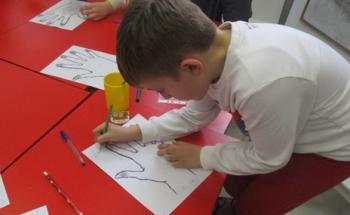
Intercultural Communicative Competence for Young Learners through CLIL
This innovative course led by award-winning trainer and author Keith Kelly, develops intercultural skills for young learners through CLIL, explores concepts of ‘selves’ and ‘others’ and presents ideas and examples of English-medium activities and materials from Anglia School classes to equip teachers with tools to prepare intercultural lessons suited to learner abilities and needs.
Description
Our 5-day programme covers: an introduction to ICC for young learners; developing intercultural communication curriculum content; an overview of intercultural skills for young learners CLIL; organizing and visualizing intercultural concepts; supporting young learner intercultural communication in the CLIL classroom.
In understanding the dynamics of interaction of self/s with other/s in the intercultural classroom, participants are presented with teaching examples of personal and group identity of self, along with examples of personal and group identity of other. The interaction among these identities through classroom activities enables learners to see depictions of identity from a number of perspectives.
Participants are also presented with a range of examples of activities where learners observe phenomena, collect information, present information, discuss and draw conclusions about the information collected.
In gathering data on self and other, learners experience all manner of input content and course participants will be presented with many examples of different cultural input media for the classroom along with techniques for engaging their learners with this input and facilitating the processing of the input materials in their lessons.
During the intercultural investigations, participants will explore ways and means for supporting learner output, both in oral and written form depending on the age of learners.
As well as seeing a wide range of input and output activities for developing intercultural skills, participants will be presented with a library of children’s picture books with cross and multi-cultural themes along with techniques for working with story in the intercultural classroom and the ultimate outcome of the course is to provide materials for colleagues to begin to compile and write resources of their own which will be published in the FACT Journal www.factworld.info.
Learning objectives
Participants will see processes involved in developing an understanding of cultural identity in home and other cultures for young children. This includes exploring examples of expression of self and other in class through a foreign language. In exploring these expressions in classroom materials participants will also consider how to set up interactions between self and other cultures in their own classrooms.
Participants will produce activities which develop learner ability to observe cultural phenomena and identity. With the theme of ‘Me, My Body, and I’ awareness of self can be developed in young learners through a number of activities which focus on all aspects of their physical self with models for building representations of themselves. Young learners can compare self with other by measuring their height alongside another object such as a picture of a tree.
Participants integrate practical craft, art, science and other activities into intercultural activities and in doing so support cross-cultural communication. At Anglia School we use the content curriculum to explore ‘self’ and ‘other’, e.g., in art, children use shapes and different materials to create a cubist representation of self and compare with those portraits of others. In developing an understanding of self and other communities, participants explore interactions with classmates (friendship / being polite); contacts with neighbours (language, relations); visits to local institutions (shops, cafes, libraries); meeting others in parks and gardens (play, rules, safety, care).
Participants develop role plays where children take roles being polite with and helping each other, serving something to each other. Similarly, activities are presented where learners are expected to collaborate on art work where they interact with each other to co-produce a piece of art. Course participants experience these and similar examples in order to develop materials and activities for their own curriculum.
Methodology & assessment
Intercultural communicative competence is developed throughout our curriculum and we implement this skill area by developing learning experiences which enable children to look at ‘self’ and ‘other’. Participants are asked to practice similar activities in workshops, and suggest and create activities for their curricula where this competence can be developed.
The methodology employs ‘up-down’ dynamics during lessons where our activities are specially targeted to meet children’s learning needs. In practice, we prepare activities to move between more and less dynamic experiences in order that our learners can maximize their learning potential. Participants are asked to consider this dynamic factor in sequencing intercultural activities they practice and materials produced.
We develop a wide range of age-appropriate intercultural learning skills which are presented in our lesson materials and followed by discussion of principles and how to best recycle and consolidate these skills over time. Participants are invited to show this sequencing and recycling of skills in the materials they produce.
A lot of time is invested in appropriate task sequencing from input to output and participants are presented with a rich range of cross-cultural primary input visual and text content materials where methods used to help children process these inputs is explicitly shown, similarly where our learners are asked to speak or write in English, we support their output and participants see this scaffolding in our course materials. Participants are asked to make use of this ‘guided input’ and ‘supported output’ in their own materials writing.
Certification details
The Putting Pre-Primary CLIL into Practice certificate includes a detailed summary of course content covered. The total number of days and hours attended on the course is also indicated. Each certificate is signed by the course trainer, Keith Kelly, dated and stamped with the official institution stamp.
All other documentation can also be provided, signed and stamped where necessary and by request.
In addition to providing all appropriate paperwork, help can be provided to arrange transport between airport and the city of Plovdiv. We can also help with finding and booking accommodation and can recommend accommodation if needed.
Pricing, packages and other information
-
Price:400Euro
Additional information
-
Language:English
-
Target audience ISCED:Early childhood education (ISCED 0)Primary education (ISCED 1)
-
Target audience type:TeacherHead Teacher / PrincipalTeacher Educator
-
Learning time:20-25 hours
Upcoming sessions
Past sessions
More courses by this organiser




